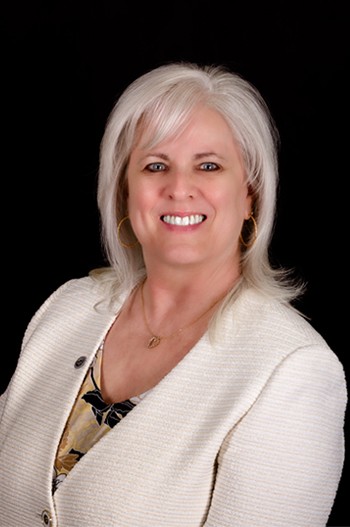Douglas County Commissioner Promotes Hopeful Future For Aging Nebraskans

Douglas County Commissioner Mary Ann Borgeson’s work with The Eastern Nebraska Office on Aging is featured in a chapter of the new book ‘Governing on the Ground: The Past, Present, and Future of County Government’, written and compiled by Peter Golden. (Courtesy of Douglas County Commissioners)
The National Association of Counties and Commissioner, Mary Ann Borgeson of the Douglas County Board of Commissioners, spoke on her chapter in the newly released book Governing on the Ground: The Past, Present, and Future of County Government. Written and compiled by Peter Golden, the book is a collection of 30 different government officials and their areas of expertise.
Borgeson spoke on her efforts to assist the elderly, calling on her own background being a caregiver to her parents late in life when they developed Alzheimer’s and cancer respectively. Borgeson, who is a chair on the Eastern Nebraska Office on Aging, is putting her focus into improving the lives of the elderly in Nebraska.
The current estimations show that by 2035 we will have more 65-year-olds than we do 18-year-olds, another ‘Grey Tsunami’. Many nursing homes and care facilities have closed across the country, with 15 closing in Nebraska in the last five years alone. With most elderly folks wanting to remain in their homes as they age instead of moving to smaller communities or assisted living centers, Borgeson is of the opinion that the options available “haven’t kept up pace” with the needs of the population. She feels they “should have already been planning” on the population shifts and how to ensure there would be help for those who were needing it.
The COVID-19 pandemic caused major changes to the landscape when it comes to nursing homes and elderly care. Many across the county were forced to restrict people entering, and the virus was particularly vicious towards those with weaker immune systems. Since the pandemic, the new system in place see many living centers requiring their patients to enter as private pay, and only later allowing for a switchover to Medicaid, and no longer allowing for people to come in with the government assistance.
The University of Nebraska-Omaha Gerontology department — which studies old age, the process of aging, and the specific problems older people face — also spoke at the event. Dr. Christopher Kelly, the head of the Gerontology department, highlighted the issues that hit their department with COVID, where their students were unable to actually enter care facilities for their practicums. But Kelly also spoke on the well-being of older individuals. “Most of our life after 65 won’t be spent in a care center.”
Borgeson feels the next few years will see increased attention towards elder care and believes that will become more brought up in the next few elections. Her most recent attempt to assist them was trying to fight for counties to be able to receive a portion of sales taxes, as they currently only receive property and inheritance taxes. While this was not successful, she continues to try and do what she can to ensure they receive any kind of assistance.
The Office on Aging is working on helping folks find more ways to be able to remain in their homes and still find comfort and care. As Borgeson put it, “people want to age in place.” The Office provides multitudes of resources, from legal and transportation options, helping to find your representative, fighting against possible scams, outreach and education material, and steps and tips for those who find themselves in the caregiver role.
Boregeson spoke on the issues facing the more rural areas of the state, where many small towns struggle to get food delivered to their elderly people who are unable to leave their homes, citing the organization Meals on Wheels, a nonprofit that assists the elderly with meal delivery, and the fact that many towns simply don’t have the drivers who are able to assist. The Office on Aging has been partnering with local restaurants to try and get food delivered and has seen marked success.
Many small towns also have lost their community centers that would have been the driving force for many of these care projects. She says that many of the ones that are still open are seeing changes to how they are working and the services they offer, as many older folks have different priorities than the generations before. “What they provide, how they provide it, and who goes are all changing.”
For resources for being a caregiver, you can go to the Eastern Nebraska Office on Aging website at enoa.org/resources/.
Category:
User login
Omaha Daily Record
The Daily Record
222 South 72nd Street, Suite 302
Omaha, Nebraska
68114
United States
Tele (402) 345-1303
Fax (402) 345-2351




